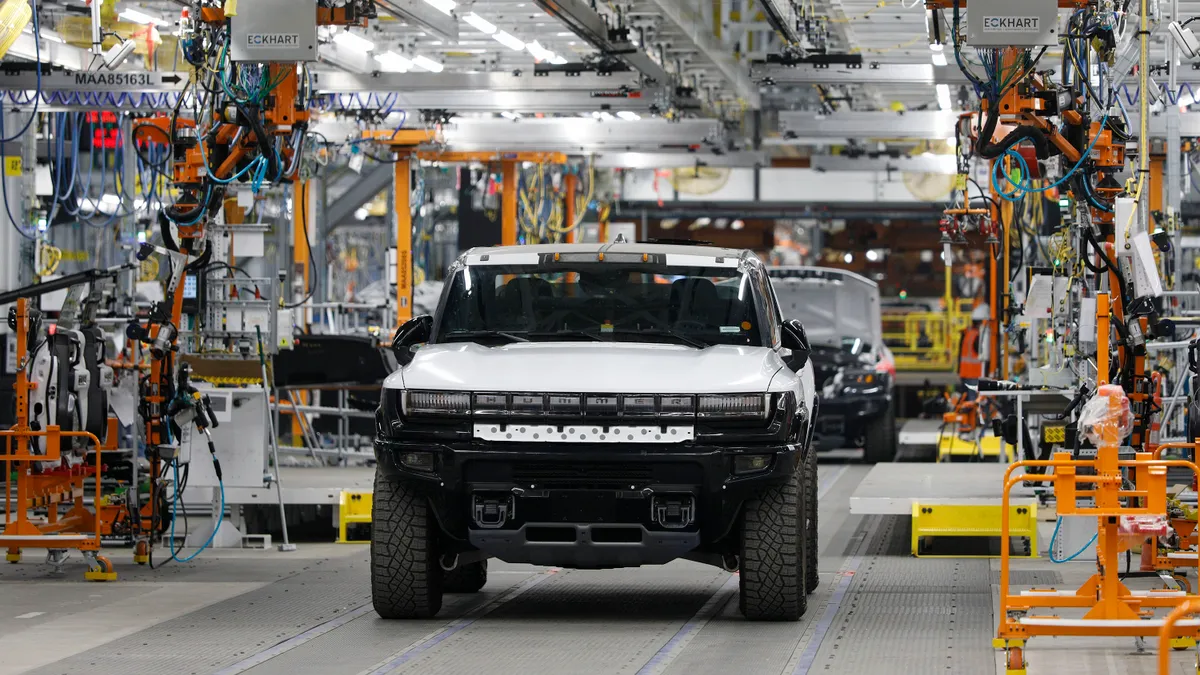Dive Brief:
- General Motors has secured three new sourcing agreements for electric vehicle battery materials to support the automaker’s goal of producing 1 million electric vehicles a year.
- The multi-year partnerships with LG Chem, POSCO Chemical and Livent will provide GM with key materials including lithium, nickel, cobalt and cathode active material (CAM), executives said in a Q2 earnings call last Tuesday.
- The automaker has worked to shore up battery production, announcing a joint venture with LG Energy Solutions to manufacture cells in-house. The new supplier agreements means GM now has contracts in place “securing all battery raw materials,” said CEO Mary Barra.
Dive Insight:
GM is diversifying its sourcing pool and collaborating with suppliers to have more control over raw material supply as it seeks to ramp up electric vehicle production.
“And as our EV strategy scales, the key question investors frequently ask is, how will you build enough batteries when competition for raw materials is intensifying?” said Barra. “And as I have said, our strategy is to control our own destiny.”
The partnership with LG Chem will deliver nearly 1 million tons of CAM between 2022’s last half and 2030, while the agreement with Livent will supply “significant quantities of lithium,” Barra said.
Livent has committed to supply lithium hydroxide to GM as part of a six-year agreement that will begin in 2025, Paul Graves, president and CEO of the chemical manufacturer, revealed in Tuesday’s earnings call. GM will pre-pay Livent $190 million this year, reflecting both companies’ “joint commitment” to “build a long-term supply relationship and establish a strong foundation for expansion,” Graves said.
GM has also taken steps to expand CAM capacity through a venture with its South Korea-based supplier POSCO Chemical, according to Barra. Two new facilities are jointly underway in Quebec. In addition, the company will work with LG Chem to “explore” opening a CAM production facility in North America by 2025.
Other automakers have worked to expand battery capacity through long-term sourcing agreements and centralized production. Last week, Ford Motor Co. inked several deals to build up supply of raw materials.
GM is working to localize its supply chain in an effort to reduce cost and mitigate long-term risk. For certain commodities, the automaker will directly source up to 75% of its needs through 2030 “with a focus on North America,” said Barra.
Part of that push includes encouraging suppliers to reshore their supply chains. Livent, for example, will independently work towards transitioning 100% of the lithium hydroxide it processes to the U.S., Barra said.
GM CFO Paul Jacobson said the business is focused on long-term partnerships with suppliers to jointly expand operations in a way that is a win-win for the company and its vendors.
“These aren’t just contracts that we’re looking to say, give me this volume of material. It’s about helping our suppliers,” he said.” “So these agreements today represent, I think, what is the best of the best out there in terms of creating these partnerships for the mutual interest of our suppliers and ourselves.”















